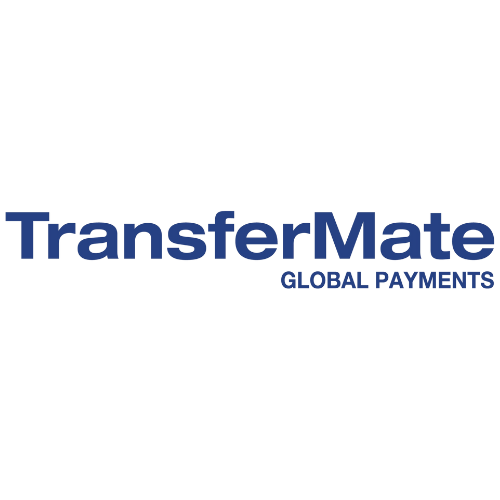Anyone that’s ever set-up a new business is aware it’s not an easy process. It requires forms to be filled, paperwork to be filed, more forms to be filled, tax authorities to be dealt with, and more documentation – it can feel endless!
The next level of complexity is expanding your business into a foreign country.
In some countries, they try to lessen the bureaucracy and paperwork, while others seem to revel in the complexity. You have to do all the same things including setting up a local banking presence (which is what we’re looking at today).
One of the foundation stones of this process is opening a foreign bank account. That’s why we asked the experts at TransferMate to explain how you can get started.
Why open a bank account for international business?
Conducting business in new countries often involves the need to send and receive payments in different currencies. If you have a bank account for international business, you can easily accept and send payments from international clients, customers, or suppliers without the hassle of currency conversion and international wire transfer procedures.
Having a dedicated bank account for international business makes global transitions easier and quicker, reducing one-off currency conversion costs traditionally occurred from standard banks that will add up of over time.
Other benefits of setting up a foreign bank account for international business include:
- Currency diversification to help you manage fluctuations in exchange rates
- Lower currency conversion costs
- Faster payment processing
- Streamlined financial processes and increased trust with international clients
Opening a foreign business bank account (the traditional way)
The correspondent banking system is made up of regional, national and international banks that talk to each other through complicated contracts and agreements. While sophisticated in many respects, it’s also patchwork in others.
Utilising traditional correspondent banks, the process of opening a bank account in a foreign country will usually involve:
- Lengthy documentation and compliance requirements
- Long approval timelines
- High operational and maintenance costs
- Complexity in managing multiple accounts in multiple countries using multiple banking platforms
These challenges serve as a real barrier to entry for a lot of businesses looking to operate quickly and efficiently in global markets. As a result, fintech companies have entered the space with alternative methods of setting up a bank account for international business in a new territory safely, quickly, and using technology to make managing it all a lot easier.
Opening a foreign business account (the fintech way)
First, an explanation about naming conventions. While banks provide, well, bank accounts, fintech companies provide ‘virtual’ accounts. There are other differences worth exploring but in essence they serve the same function – you can pay out from, receive into, and store funds in both.
How fintech companies deliver these virtual accounts in multiple currencies in one place is through building up a regulated infrastructure. Unlike national banks which only have licenses to operate in their country, fintechs have licenses in many regions, and work with local banking partners, to create a global network.
This means that clients who work with a fintech provider can (once onboarded) go into the platform and open accounts in foreign territories – instantly. The only restriction is the coverage the fintech offers.
This ability to open virtual accounts in multiple currencies has a couple of key benefits:
- You can join these virtual accounts to a global payments infrastructure. In other words, you can use them to pay out across the world, get paid directly into them, and store funds in multiple currencies.
- Practical benefits include the ability to instantly buy currencies (no waiting on the bank), and easily convert between currencies when the FX rate suits you.
- Typically, costs of moving money internationally will be significantly lower versus using banks.
- Because you’re using one provider for large parts (if not all) of your accounts payable process, reconciliation and the time it takes to manage payments becomes exponentially better.
4 ways to pick a fintech provider when opening a foreign account for international business
When you begin researching fintech providers to open a virtual bank account for international business it can feel the only difference between them is the number of currencies they offer. Under that surface level though, there are important things to consider.
1. Omnibus accounts vs segregated accounts
This comes down to that basic question, ‘what would happen to my money if you went bust?’
With omnibus accounts, money from multiple clients is mixed together as they move through the network. On a day-to-day level, this can make tracking where funds are more difficult. On the more existential level, this can make sorting everyone’s funds out if the provider goes out of business a lot more difficult and riskier.
Ask any potential provider how they segregate your funds from others.
2. Currencies offered vs local accounts
Just because a fintech provider offers Singapore Dollar bank accounts, it doesn’t mean they can offer the ability to open a local bank account in Singapore.
Their euro accounts may, for instance, be domiciled in one European country. In the main, and particularly with the euro, this won’t matter as payment rails are regional like the currency, but is a useful fact to know.
It’s particularly important for delivering payroll in certain countries, which may require a locally-based account.
3. Platform capabilities
One of the big advantages of building and controlling your own network of international bank accounts is the ability to see all your cash in one place, and have flexibility to move it when you need to and when rates are favourable, so the platform itself is an important element to research.
Always ask for a demo.
4. Regulation level
When choosing a provider to open a bank account for international business, ask for their regulatory status. This goes beyond the fundamental aspect of keeping your money safe; different regulatory statuses give greater capabilities in what you can do with your funds.
For example, a broader E-Money or stored value license allows businesses to store certain currencies indefinitely, whereas if a business is not designated as an Electronic Money Institution (EMI) you’ll have to move funds out of certain currencies within a certain period.
Ready to expand your financial footprint by taking your business global?
There is now a quicker, more cost-efficient and safe way to build and control your own international network of multi-currency accounts when taking your business global.
By leveraging the regulated infrastructure built by fintechs like TransferMate, companies can now set-up a bank account for international business in new territories, and get buying and selling, within a few clicks of a button. And, you’ll be glad to know, there’s a lot less forms to be filled!
Once you expand your financial footprint and start building profit and traction in new countries, at some stage you will need to hire employees; whether that’s senior sales and marketing roles to build your presence or a full team in a new office. But do you know the local employment laws you must follow in that country?
Whether it’s paid sick leave requirements, payroll schedules, tax deductions, or employer benefits such as retirement plans you are legally required to offer. By using a Global Employer of Record like Workwell Global, we make it work for you. We engage and payroll your worker in accordance with local labour laws wherever in the world you need to hire.
-
Two key aspects of building an international business sorted via trusted suppliers.
Speak with an expansion expert from Workwell Global to learn more about the intricacies of global employment and how we can make it work for you.
Disclaimer: Workwell Global does not endorse any personal views or opinions of the author. All information here is for general informational purposes only and is not intended to be a substitute for professional and/or legal services.
About the author
This article is written by Jonathan Church is the Virtual Accounts Product Manager at TransferMate. TransferMate allow clients and partners open virtual accounts in 30+ currencies, and connect to a regulated payment’s network covering 200+ countries and territories.
Workwell Global help businesses hire talent; whoever and wherever in the world. We’ve partnered with TransferMate to offer clients a solution to send and receive secure multi-currency payments, a key aspect when building a global business in addition to our solution to engage and payroll workers.

